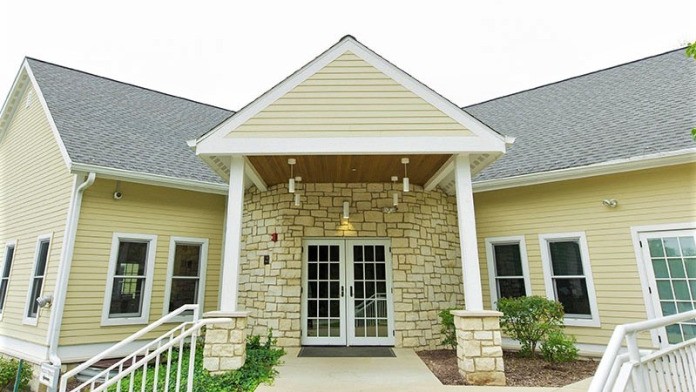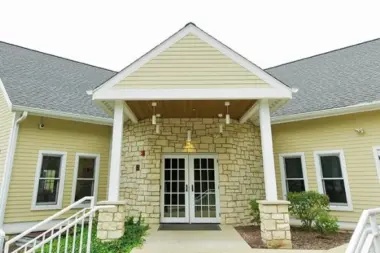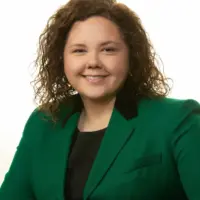About TK – PHP & IOP for Women
Life at the center consists of individual and group therapy, adopting new coping skills, and learning to unravel the psychosomatic dimension of quitting drinking or drug use. This may include an FDA prescription to address the very real bodily sensations you’re feeling, not imagining, which have a mental origin but a physical effect.
It’s great that they address the dietary and nutritional aspects of addiction. How many people are using drugs because of a lack of minerals or nutrients in their everyday eating choices? Learning new attitudes about food itself may reduce the stigma that people who have bulimia or anorexia possess. It may help others to lose weight without trying once they know what works best for their bodies.
Some people said the group leader could have been more welcoming, and others said to find an alternative if you weren’t specifically experiencing a substance use disorder or behavioral problems related to eating. Still, others said they had a great staff and a receptive ear, no matter their position at work.
Latest Reviews
Rehab Score
Gallery


Accepted Insurance



Other Forms of Payment
Private insurance refers to any kind of healthcare coverage that isn't from the state or federal government. This includes individual and family plans offered by an employer or purchased from the Insurance Marketplace. Every plan will have different requirements and out of pocket costs so be sure to get the full details before you start treatment.
Self-pay involves paying for treatment out of your own pocket. You can use savings or credit, get a personal loan, or receive help from family and friends to fund your treatment. If you don't have insurance or your insurance plan doesn't cover a specific program, self-pay can help ensure you still get the care you need.
Financial aid can take many forms. Centers may have grants or scholarships available to clients who meet eligibility requirements. Programs that receive SAMHSA grants may have financial aid available for those who need treatment as well. Grants and scholarships can help you pai for treatment without having to repay.
Military members, veterans, and eligible dependents have access to specific insurance programs that help them get the care they need. TRICARE and VA insurance can help you access low cost or no cost addiction and mental health treatment. Programs that accept military insurance often have targeted treatment focused on the unique challenges military members, veterans, and their families face.
Addiction Treatments
Levels of Care
The Continuing Care Program of Timberline Knolls is set in a non-hospital-based environment and is designed to empower women to take control of their recovery journeys so that they may blossom into independent, successful, and healthy beings. While engaged in their program, women attend services Monday through Friday from 9 am until 3 or 3:30 pm. During this time, women benefit from the support and guidance of a highly trained and compassionate staff that is fully dedicated to helping women in their pursuit of healthier lives.
When participating in an inpatient rehab program, you'll reside at the treatment center for the duration of the program. Your housing and meals are provided, allowing you to focus on your recovery without outside triggers, stressors, and other distractions. You'll receive daily addiction counseling, drawing on various psychotherapeutic approaches like cognitive behavioral therapy (CBT) and motivational interviewing. Many inpatient drug rehabs also offer complementary holistic therapies, such as yoga, meditation, or animal therapy, and creative arts therapy.
Rehab aftercare programs provide a full continuum of care for clients who are exiting inpatient treatment. Though outpatient care is often considered an element of drug rehab aftercare, services typically continue for the remainder of the clients' life and long after formal treatment is completed. Clients work with their case managers and care team to formulate a customized portfolio of medical, mental health, and social service resources designed to evolve as the client's needs change.
Twelve Step groups are a type of mutual support group that offer a solution to the problem of addiction and a tremendous amount of continuous peer support for those who desire to stop using substances. Alcoholics Anonymous, AA, and Narcotics Anonymous, NA, are two of the largest 12 step groups attended by persons recovering from addiction or alcoholism. Al-anon holds separate meetings for family members of those who have suffered with alcohol or drug addiction. AA and Al-anon meetings are held daily in cities across the Country. Online meetings may be an option for those without the ability to travel to in-person meetings.
A partial hospitalization program (PHP) is a short-term form of intensive rehab, usually for those with acute symptoms that are hard to manage but don't require 24-hour care. In order to continue helping women in need, Timberline Knolls offers Partial Hospitalization Program for mental health, substance abuse, eating disorders and co-occurring issues to women age 18 and older.
Drug and alcohol addiction often takes a heavy toll on one's body. Over time, a physical dependence can develop, meaning the body physiologically needs the substance to function. Detox is the process of removing drugs and/or alcohol from the body, a process that can be lethal if mismanaged. Medical detox is done by licensed medical professionals who monitor vital signs and keep you safe, healthy, and as comfortable as possible as you go through detox and withdrawal.
Treatments
The goal of treatment for alcoholism is abstinence. Those with poor social support, poor motivation, or psychiatric disorders tend to relapse within a few years of treatment. For these people, success is measured by longer periods of abstinence, reduced use of alcohol, better health, and improved social functioning. Recovery and Maintenance are usually based on 12 step programs and AA meetings.
Drug rehab in Illinois is designed to help people recover from addiction to a number of substances. The length of each program and its intensity tend to vary, and the plan of care is based on your individual needs.
When treating women and girls for anorexia nervosa, bulimia, or other addictions, their specialized treatment team at Timberline Knolls Residential Treatment Center never assumes they are treating an isolated disease. Frequently, drug addiction, alcoholism, anxiety disorders or an eating disorder co-occur with depression. Timberline Knolls Residential Treatment Center emphasizes early identification of co-occurring disorders. Given the high incidence of co-occurring addictions in women with major depression, treatment success depends on an accurate diagnosis by a multidisciplinary treatment team experienced in the assessment of both mood disorders and substance abuse.
A combined mental health and substance abuse rehab has the staff and resources available to handle individuals with both mental health and substance abuse issues. It can be challenging to determine where a specific symptom stems from (a mental health issue or an issue related to substance abuse), so mental health and substance abuse professionals are helpful in detangling symptoms and keeping treatment on track.
Opioid rehabs specialize in supporting those recovering from opioid addiction. They treat those suffering from addiction to illegal opioids like heroin, as well as prescription drugs like oxycodone. These centers typically combine both physical as well as mental and emotional support to help stop addiction. Physical support often includes medical detox and subsequent medical support (including medication), and mental support includes in-depth therapy to address the underlying causes of addiction.
Programs
Adult rehab programs include therapies tailored to each client's specific needs, goals, and recovery progress. They are tailored to the specific challenges adult clients may face, including family and work pressures and commitments. From inpatient and residential treatment to various levels of outpatient services, there are many options available. Some facilities also help adults work through co-occurring conditions, like anxiety, that can accompany addiction.
Young adulthood can be an exciting, yet difficult, time of transition. Individuals in their late teens to mid-20s face unique stressors related to school, jobs, families, and social circles, which can lead to a rise in substance use. Rehab centers with dedicated young adult programs will include activities and amenities that cater to this age group, with an emphasis on specialized counseling, peer socialization, and ongoing aftercare.
Clinical Services
Cognitive Behavioral Therapy (CBT) is a therapy modality that focuses on the relationship between one's thoughts, feelings, and behaviors. It is used to establish and allow for healthy responses to thoughts and feelings (instead of unhealthy responses, like using drugs or alcohol). CBT has been proven effective for recovering addicts of all kinds, and is used to strengthen a patient's own self-awareness and ability to self-regulate. CBT allows individuals to monitor their own emotional state, become more adept at communicating with others, and manage stress without needing to engage in substance abuse.
Unlike therapeutic groups run by clinical professionals, peer-led support groups can help substance abusers learn to verbalize feelings and to live free from using alcohol and drugs. Peers give each other encouragement as they share their unique stories in a non-judgmental setting, which can reduce the shame associated with addictive diseases.
IIndividual and/or group psychotherapy sessions help many women suffering with alcohol and abuse to better understand the addictive disease process and alleviate their symptoms. A certified addictions counselor (CADC), psychologist, therapist, social worker, psychiatrist, or eating disorder specialist may conduct individual and group therapy for substance abuse and addiction.
Many of the women who come to Timberline Knolls have a history of trauma in addition to the presenting diagnostic problems of substance abuse, anorexia, bulimia, or mood disorders. TK staff is trained to be aware of the impact of trauma on a woman’s life and treatment. They are constantly mindful that each woman has a unique story that influences her emotions in very personal ways. They understand how ordinary interactions can lead to overwhelming emotional responses in women with histories of significant trauma.
Timberline Knolls eating disorder treatment staff also equips a woman’s family to engage in recovery as a family during and after her residential treatment. Alcoholism and drug addiction not only affect the sufferer, but also impact parents, siblings, and her spouse and children. Family therapy focused on the entire family system may help the family to recover themselves from the devastating effects of living with addiction or alcohol abuse. Family members learn how to take care of themselves and also how best to support their loved one in her recovery.
Life skills trainings involve all the skills a person must have in order to function successfully in the world. These include time management, career guidance, money management, and effective communication. Truly successful addiction recovery is based on the ability to not only live substance-free, but to thrive. Life skills teaches the practical necessities of functioning in society, which sets clients up for success in life, and therefore sobriety. Women receive weekly support from a financial counselor and care coordinator.
Nutrition therapy, aka medical nutrition therapy (MNT), is a way of treating physical, emotional, and medical conditions through diet. Specific dietary plans are designed by professional nutritionists or registered dietitians, and patients follow them in order to positively affect their physical and mental health.
Amenities
-
Residential Setting
-
Private Rooms
Staff & Accreditations
Staff

Sarah Sadkowski, MA, MS, LCPC
CEO

Dr. Ozlem Dubauskas
Medical Director

Aisha Ward, MBA
CFO

Soraya Soto
Director of Admissions
Accreditations

The Substance Abuse and Mental Health Services Administration (SAMHSA) is a branch of the U.S. Department of Health and Human Services. Established in 1992 by congress, SAMHSA's mission is to reduce the impact of substance abuse and mental illness on American's communities.
SAMHSA Listed: Yes

State Licenses are permits issued by government agencies that allow rehab organizations to conduct business legally within a certain geographical area. Typically, the kind of program a rehab facility offers, along with its physical location, determines which licenses are required to operate legally.
State License: Illinois
License Number: IL100813

The Joint Commission, formerly known as JCAHO, is a nonprofit organization that accredits rehab organizations and programs. Founded in 1951, the Joint Commision's mission is to improve the quality of patient care and demonstrating the quality of patient care.
Joint Commission Accreditation: Yes
Accreditation Number: 435379

The National Association of Addiction Treatment Providers (NAATP) is a professional association that represents organizations in the field of addiction services. Founded in 1978, NAATP's mission is to advance addiction services and ensure that high-quality addiction treatment is available and accessible.
NAATP Member: Yes
Member ID: 595
Contact Information
14620 South LaGrange Road
Orland Park, IL 60462






